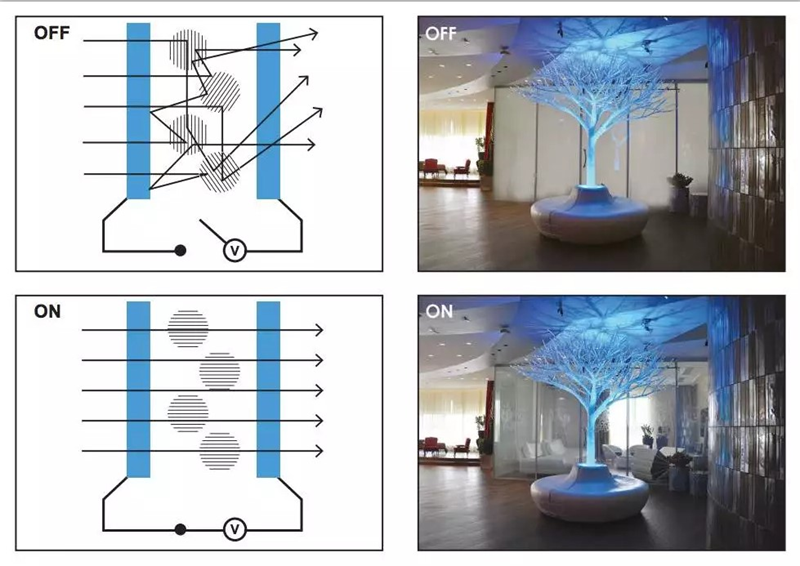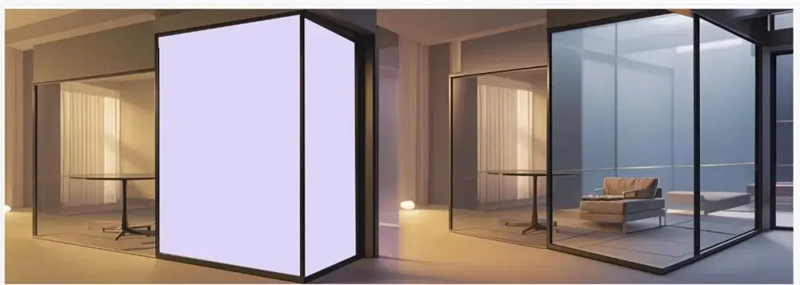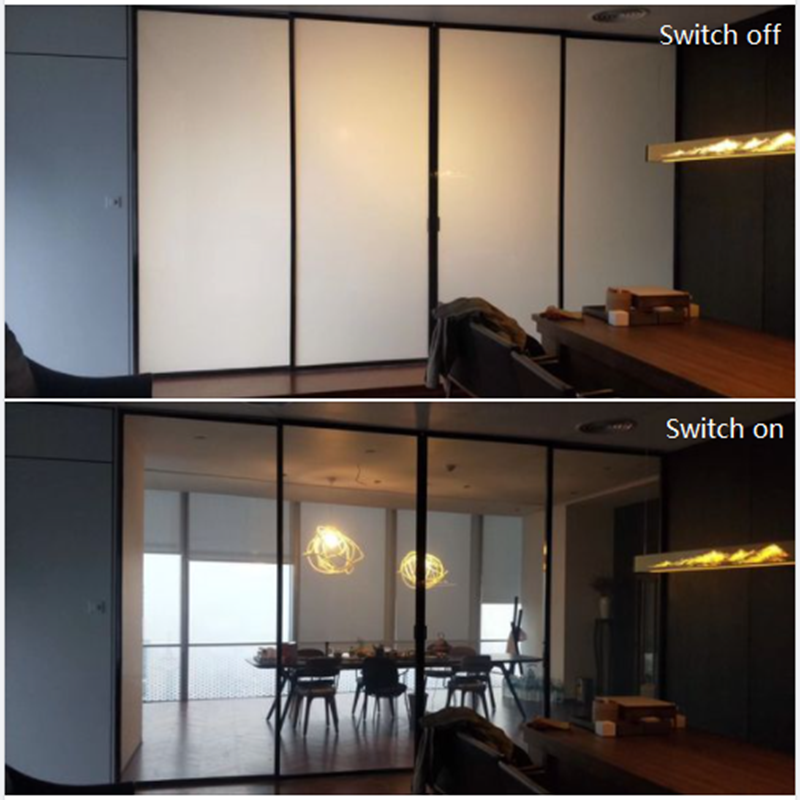PDLC Smart Film Application
In the ever-evolving landscape of modern architecture, the integration of innovative materials is crucial for enhancing both functionality and aesthetics. One such groundbreaking material is PDLC (Polymer Dispersed Liquid Crystal) smart film, which has gained significant attention for its ability to control privacy and energy efficiency in buildings. This article explores the applications of PDLC smart film for privacy glass, highlighting its advantages and potential to transform architectural design.
Understanding PDLC Smart Film
PDLC smart film is a versatile material that can switch between transparent and opaque states with the application of an electric current. This unique property allows architects and designers to create dynamic spaces that can adapt to various needs throughout the day. For instance, a conference room can be transformed from a private meeting space to an open area simply by toggling the film’s state. This flexibility is particularly appealing in modern architecture, where multifunctional spaces are increasingly in demand.
Privacy Control in Architectural Design
One of the most significant advantages of PDLC smart film for privacy glass is its ability to provide instant privacy. In urban environments, where buildings are often in close proximity, maintaining privacy can be a challenge. PDLC smart film allows architects to design glass facades that can switch from clear to frosted at the touch of a button. This feature is particularly beneficial in residential buildings, offices, and healthcare facilities, where privacy is paramount.
For example, in a high-rise apartment building, residents can enjoy unobstructed views during the day while ensuring their privacy at night. Similarly, in healthcare settings, patient rooms can utilize PDLC smart film to create a calming environment that can be adjusted based on the needs of patients and staff. This adaptability not only enhances user experience but also aligns with the growing trend of personalized spaces in architecture.
Energy Efficiency Benefits
In addition to privacy control, PDLC smart film contributes to energy efficiency in modern buildings. By regulating the amount of natural light that enters a space, this smart film can help reduce reliance on artificial lighting and HVAC systems. When the film is in its opaque state, it minimizes heat gain from sunlight, thereby lowering cooling costs during hot months. Conversely, when transparency is desired, natural light can illuminate the space, reducing the need for electric lighting.
For instance, a commercial building equipped with PDLC smart film can significantly decrease its energy consumption. By strategically using this technology in windows and partitions, architects can create environments that are not only aesthetically pleasing but also environmentally friendly. This aligns with the increasing emphasis on sustainable design practices in the architecture industry.
Enhancing Aesthetic Appeal
Beyond functionality, PDLC smart film for privacy glass also enhances the aesthetic appeal of modern architecture. The sleek, minimalist look of glass facades is complemented by the seamless integration of smart film technology. Architects can design striking visual elements that change dynamically, adding a layer of sophistication to their projects.
Moreover, PDLC smart film can be customized to fit various design themes, making it a versatile choice for architects and designers. Whether it’s a contemporary office building or a luxurious residential space, the ability to control light and privacy while maintaining a modern aesthetic is a game-changer.
Conclusion
In conclusion, the applications of PDLC smart film in modern architecture offer significant advantages in privacy control and energy efficiency. As architects and designers seek innovative solutions to meet the demands of contemporary living, PDLC smart film for privacy glass stands out as a transformative material. By incorporating this technology into their designs, professionals can create spaces that are not only functional but also visually appealing and sustainable. As the industry continues to evolve, embracing such innovations will be key to shaping the future of architecture.
For those looking to enhance their projects with cutting-edge materials, PDLC smart film presents an exciting opportunity to redefine the boundaries of architectural design.


